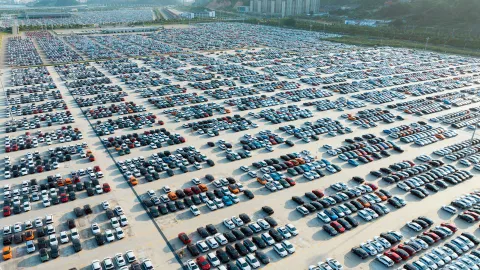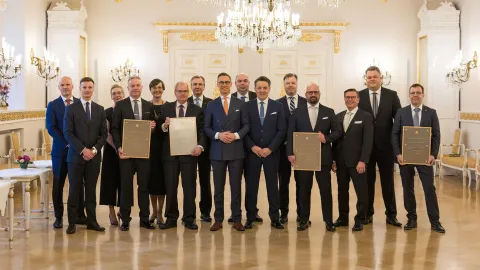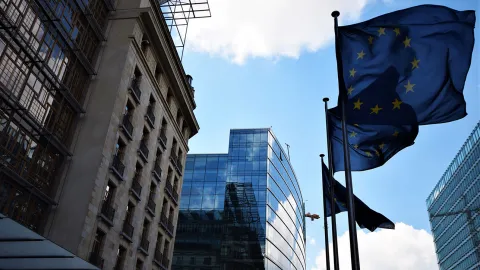Finland’s Battery cluster gets a boost from electrification of transport – Sibanye-Stillwater’s Keliber lithium project aims for number one spot in Europe
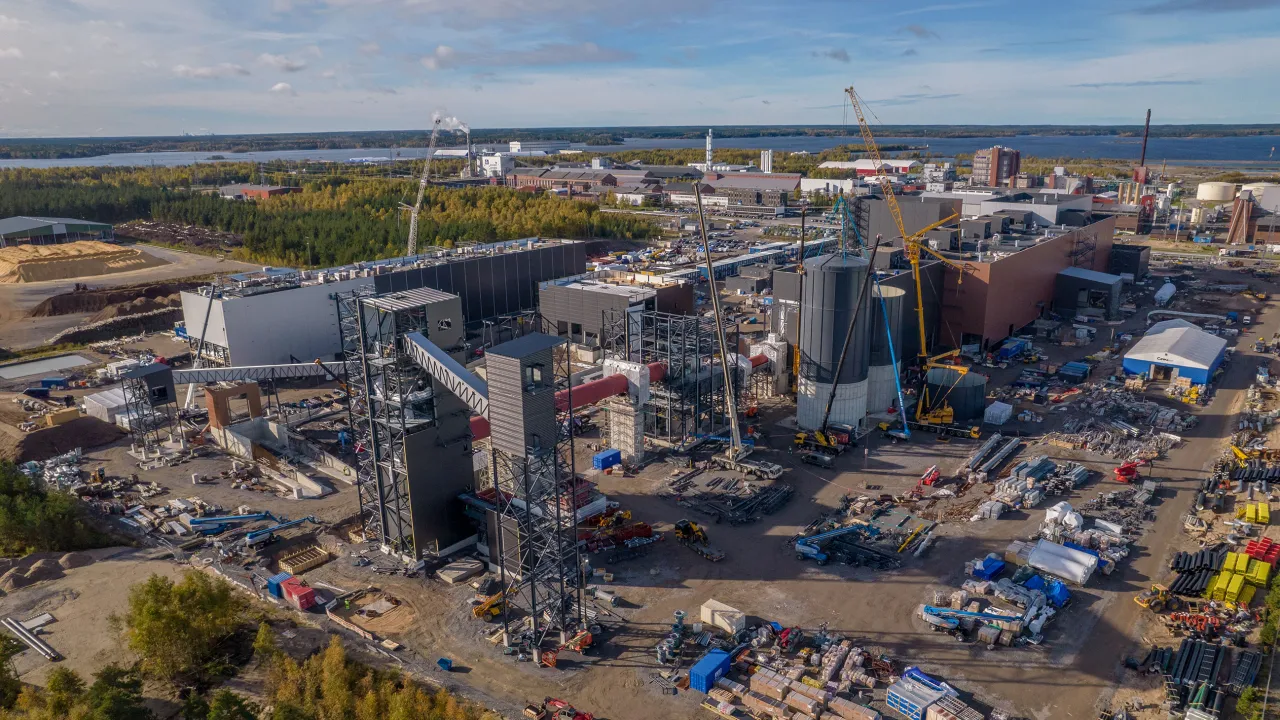
Sibanye-Stillwater's Keliber lithium refinery in Kokkola, Finland, in October 2024. Photo: Wegevision/ Sibanye-Stillwater's Keliber lithium project.
Published date
Finland’s battery cluster’s current growth prospects remain very positive as the green transition and the electrification of the transport sector continue to increase the demand for raw materials and battery chemicals. The leading region in this cluster is Central Ostrobothnia, where Sibanye-Stillwater's Keliber lithium project, a mining and battery chemicals company, has developed its investments over the long term. The Keliber project in Kaustinen and Kokkola recently took a major step forward with the closing of its needs for financing. The project will lead to more jobs and exports in Finland, and it will also involve new, domestically developed battery chemical processing technologies. The Keliber lithium project aims to be the first in Europe to develop a responsible and sustainable production for lithium hydroxide, a key component of all lithium-ion batteries.
Sibanye-Stillwater’s Keliber lithium project consists of the construction of a concentrator in Kaustinen and a lithium refinery in Kokkola. The company has 7 lithium deposits, whereof one is already being developed on the site of the Syväjärvi, which will be the project’s first producing lithium mine.
The project’s total investment – a sizable EUR 650 million – has also made it a major employer in the region. As the project’s largest provider of financing, Finnvera helped realise this investment by granting a Finance Guarantee for a EUR 250 million line of credit. The project's financing also involved other international banks and is a significant milestone by receiving the first Green Loan to the mining sector supported by the European Investment Bank.
“The loan package has been important to us, as it complements the financing we’ve previously raised, and now we’re on track to being the first in Europe to cross the finishing line. The project itself will continue as before: we’re currently focusing on the safe construction of our lithium refinery and concentrator, and we’re also preparing for the project’s production phase. In the second half of next year, the lithium refinery in Kokkola is expected to begin ramping up production,” says Hannu Hautala, SVP, Sibanye-Stillwater Keliber operation.
Once production has been ramped up, the company will produce battery-quality lithium hydroxide for electric car batteries, all of which make use of lithium.
“Our annual production will be enough for around 300,000 electric car batteries. Our potential customer base includes large European players in both the battery and automotive industry. Customers are craving for European lithium that has been produced as responsibly and sustainably as possible. And, since the automotive industry serves everyday consumers, a responsible and traceable production process is an important selling point for it as well,” says Hannu Hautala.
Finnvera’s export credit guarantees are usually meant for foreign buyers who wish to purchase Finnish goods, but the Finance Guarantee can also be granted for domestic investments that promote exports, and the Keliber lithium project has been deemed highly relevant to Finland’s interests.
“This investment displays strong potential for promoting Finnish exports, as the product’s end-market is located beyond our borders, and it will also generate a significant level of income and added value to Finland. Nearly all of the procurements made in the project are of domestic origin, and Metso, a Finnish company, is set to deliver the project’s key technological solutions. Lithium is a crucial raw material in the green transition, and the project will have a positive impact on the climate, as it will contribute to electrifying the transport sector and solve the need for storing clean energy,” says Senior Adviser Maria Maliniemi from Finnvera.
“The production process also has a lower carbon footprint than most of the global competitors”.
The primary owner of Keliber is the South African Sibanye-Stillwater Group. Keliber’s second biggest owner with a 20% stake is the state-owned Finnish Minerals Group (Suomen Malmijalostus Oy), FMG, tasked with increasing the value of Finnish minerals in a responsible and sustainable manner. The company is responsible for state-owned mines and aims to develop the value chain of domestic lithium-ion batteries.
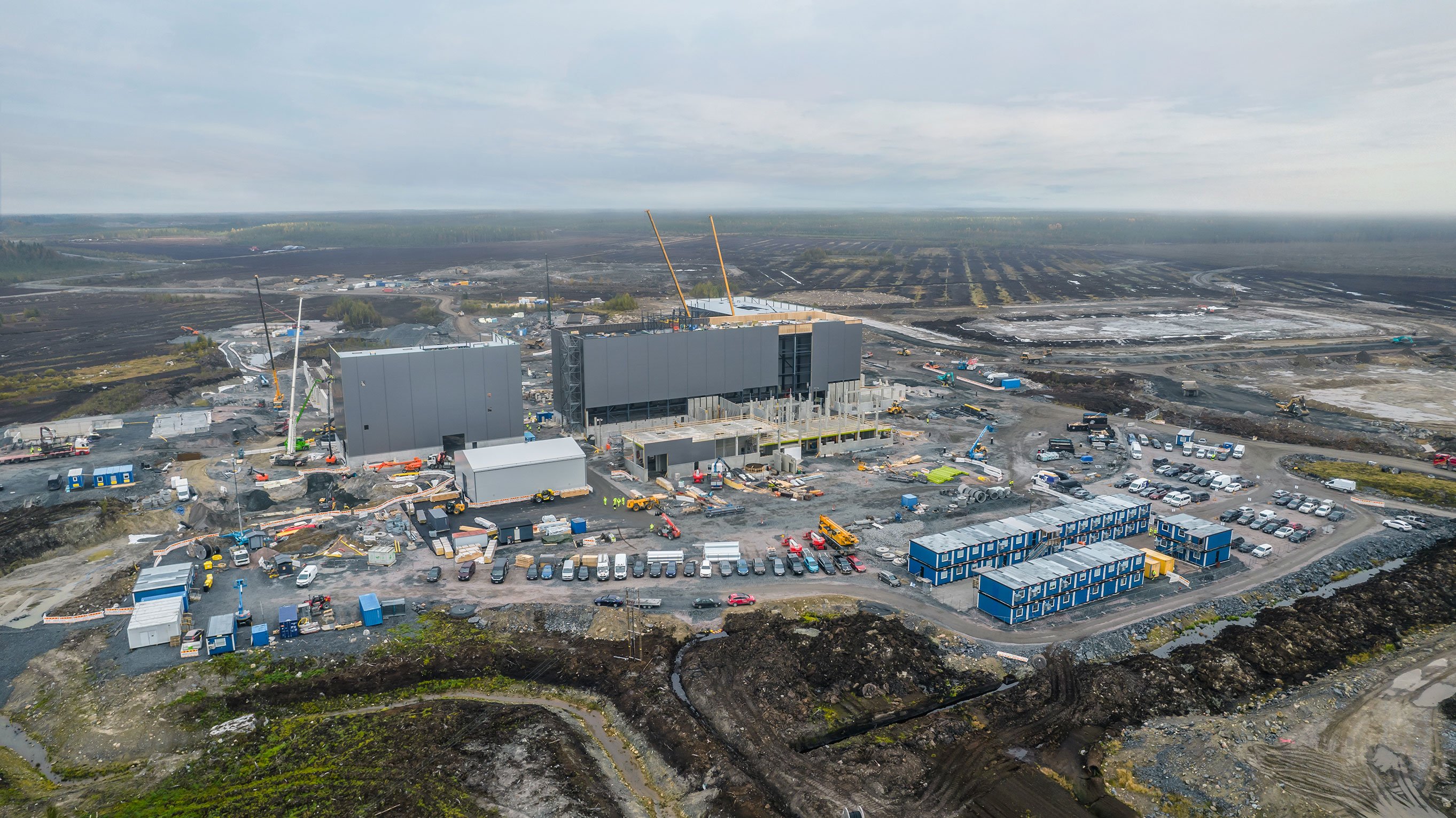
Sibanye-Stillwater’s Keliber concentrator is under construction in Kaustinen, Finland. The picture is from October 2024. Photo: Wegevision/ Sibanye-Stillwater's Keliber lithium project.
Surge in demand for battery chemicals – Central Ostrobothnia’s lithium deposits among Europe’s biggest
The energy transition has revolutionised the demand for batteries, and this growth has been driven by the electrification of transport and the need for storing energy.
The International Energy Agency (IEA) is expecting the electronic vehicle sales to globally reach almost 45 million in 2030, up from around 14 million in 2023 according to the Stated Policies Scenario. For Europe, the forecast for electric cars sold in 2030 is slightly more than 10 million. According to an estimate by the IEA, by 2040, the demand for lithium is set to increase by a factor of around 13 from its current level, signalling huge expectations for the growth of raw material production in lithium-ion batteries.
Since the automotive industry serves everyday consumers, a responsible and traceable production process is an important selling point for it as well, says Hannu Hautala.
Sibanye-Stillwater’s Keliber lithium project is expected to become the first integrated lithium hydroxide producer in Europe that can produce battery-grade lithium hydroxide. Its estimated annual production capacity is 15,000 tonnes of battery-grade lithium hydroxide monohydrate that can be used to supply the growing international lithium battery market with a life-of-mine that is expected to be at least 16 years.
The project’s value chain has a strong foundation, as any risks related to geopolitics and logistics are reduced by the fact that the project can conduct its raw material extraction and further processing in the same region. From a perspective of sustainability and supply security, it is significant that the project’s raw material is of domestic origin and that its production conditions are known. The lithium deposits in Central Ostrobothnia, which were first identified at the end of the 1950s, are among the most important in Europe.
New refining technology produces less emissions
While the project’s production process is not emissions-free, its emissions are expected to be lower than that of projects that use other technologies. Metso, the project’s supplier of refining technology , has developed a new pressure leaching process that uses soda ash to extract lithium from lithium-rich ore. The most commonly used process to extract lithium from rock is sulphuric acid leaching, which has a higher environmental footprint than Metso’s solution.
“Metso’s lithium process recovers lithium selectively without acids, and it also does not leach heavy metals to the same extent as in sulphuric acid leaching. The process does not result in any streams that contain sulphuric acid or sulphate; instead, its by-product is analcime sand that can be used, for example, in construction as a filling or cement binder. Metso’s goal was to develop a responsible technical and economic solution for lithium recovery”, explains Don Simola, Director of Battery Chemical Technology at Metso.
Metso will supply the key technological solutions for the Keliber lithium project. In connection with the project, Metso has during the last few years conducted several pilot trials with lithium concentrates, and the technologies used in the project represent leading edge solutions for the processing of other battery minerals. In addition to the Keliber project, Metso’s commercialised lithium recovery technology has generated numerous other similar projects and received positive feedback from the market.
Sibanye-Stillwater's Keliber lithium project in a nutshell
- The project comprises 7 lithium deposits, a concentration plant, and a lithium refinery.
- Size of the investment: approx. EUR 667 million (adjusted for inflation)
- During its construction phase, the lithium project will provide jobs for around 800 people and, after the start of production, around 350 people including contractors.
- The lithium refinery is set to begin ramping up its production in the second half of 2025, and the concentration plant in 2026.
More information on the topic:
Finnvera’s Guaranteed Transactions: Finnvera guarantees Keliber's lithium project with a EUR 250 million Finance Guarantee | Finnvera
Read more about Finnvera's sustainable financing: Solutions for sustainable financing | Finnvera

